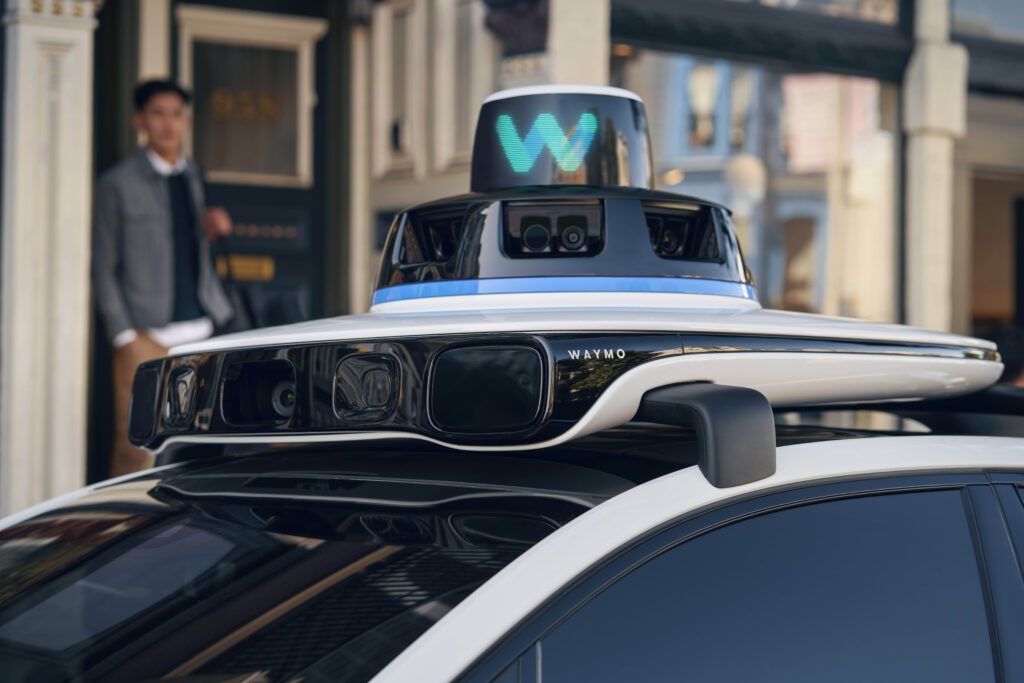Waymo self-driving taxis will arrive in London in 2026
Waymo is bringing its autonomous ride-hailing service to London, where it intends to roll-out taxis with no human behind the wheel by 2026. Olivia Palamountain reports
Waymo aims to complement London's existing network of bus, tube, bike and pedestrian infrastructure with its ride-hailing service, which will be available through the Waymo app. Over the coming months, Waymo will establish operational foundations in collaboration with fleet operations partner Moove, while engaging with local and national leaders to secure necessary permissions for commercial service in London.
In the US, the Waymo Driver has already driven over one hundred million fully autonomous miles on public roads and provided more than ten million paid rides.
 "We're thrilled to bring the reliability, safety and magic of Waymo to Londoners," says Waymo co-CEO Tekedra Mawakana. "Waymo is making roads safer and transportation more accessible where we operate. We've demonstrated how to responsibly scale fully autonomous ride-hailing, and we can't wait to expand the benefits of our technology to the United Kingdom."
"We're thrilled to bring the reliability, safety and magic of Waymo to Londoners," says Waymo co-CEO Tekedra Mawakana. "Waymo is making roads safer and transportation more accessible where we operate. We've demonstrated how to responsibly scale fully autonomous ride-hailing, and we can't wait to expand the benefits of our technology to the United Kingdom."
Waymo already maintains strong ties to the UK. London and Oxford are home to the company's first international engineering hubs, which include teams advancing large-scale, closed-loop simulation for autonomous driving technology development. Waymo also partners with Jaguar Land Rover, whose all-electric I-PACEs equipped with the Waymo Driver currently serve hundreds of thousands of fully autonomous rides weekly in the US and are operating in Tokyo as part of the company's international expansion.
 "I'm delighted that Waymo intends to bring their services to London next year, under our proposed piloting scheme," says Secretary of State for Transport Heidi Alexander. "Boosting the AV sector will increase accessible transport options alongside bringing jobs, investment, and opportunities to the UK. Cutting edge investment like this will help us deliver our mission to be world-leaders in new technology and spearhead national renewal that delivers real change in our communities."
"I'm delighted that Waymo intends to bring their services to London next year, under our proposed piloting scheme," says Secretary of State for Transport Heidi Alexander. "Boosting the AV sector will increase accessible transport options alongside bringing jobs, investment, and opportunities to the UK. Cutting edge investment like this will help us deliver our mission to be world-leaders in new technology and spearhead national renewal that delivers real change in our communities."
The company suggests its technology can help achieve London's transport priorities, including ambitious targets for reducing road injuries and deaths. According to Waymo, its technology is involved in five times fewer injury-causing collisions and twelve times fewer injury-causing collisions with pedestrians compared to human drivers. "The planned introduction of Waymo in the UK represents the potential for the dawn of a new era in independent mobility options for blind and partially sighted people," says Robin Spinks, head of inclusive design at the Royal National Institute of Blind People (RNIB). "As someone who's been severely sight impaired since birth, I've long hoped for the day when technology can safely enable spontaneous autonomous travel. Autonomous vehicles systems should be accessible to everyone and we're working with the community and our industry partners to ensure that the rollout of this technology prioritises the safety and diverse needs of riders and pedestrians."
"The planned introduction of Waymo in the UK represents the potential for the dawn of a new era in independent mobility options for blind and partially sighted people," says Robin Spinks, head of inclusive design at the Royal National Institute of Blind People (RNIB). "As someone who's been severely sight impaired since birth, I've long hoped for the day when technology can safely enable spontaneous autonomous travel. Autonomous vehicles systems should be accessible to everyone and we're working with the community and our industry partners to ensure that the rollout of this technology prioritises the safety and diverse needs of riders and pedestrians."





















